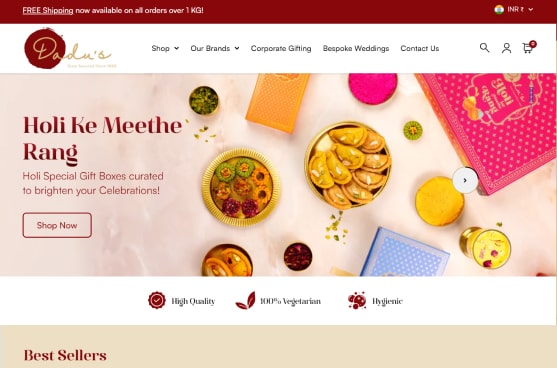In today’s rapidly evolving landscape of web development, selecting the right tools and technologies is one of the most critical decisions you’ll make when starting a new project. The success of your website or application doesn't just depend on how good it looks or how fast it loads—it also hinges on how efficiently it’s built, how easy it is to maintain, and how well it scales over time. Laravel offers structure, modern development features, and a supportive ecosystem, while raw PHP gives you complete control and flexibility with fewer built-in tools. So, how do you choose the right one for your needs? In this post, we’ll take a deep dive into the pros and cons of each, compare their performance, scalability, security, and development speed, and ultimately help you decide which approach is best for your next web development project.
What is Raw PHP?
Raw PHP, often referred to as core PHP, is the practice of writing server-side code using the native features of the PHP programming language without relying on any external libraries or frameworks like Laravel, Symfony, or CodeIgniter. In raw PHP, there is no predefined structure such as the MVC (Model-View-Controller) pattern. Instead, developers manually define how files are organized, how data flows through the application, and how different components interact with each other.
Advantages of Raw PHP:
- Complete Flexibility: You have full control over how your application is structured.
- Lightweight: There’s no extra overhead from frameworks.
- Faster Execution (Sometimes): In small applications, raw PHP can be slightly faster as there's no framework code being loaded.
Disadvantages:
- Reinventing the Wheel: You'll often find yourself writing common features like routing, authentication, and security from scratch.
- Harder Maintenance: Larger codebases can quickly become difficult to manage.
- Longer Development Time: More time is spent building foundational features.
Explore our PHP Development Services
What is Laravel?
Laravel is one of the most popular and powerful PHP frameworks available today. It's built to make web development faster, easier, and more enjoyable—especially for developers working on complex or dynamic websites. What sets Laravel apart is that it follows the MVC (Model-View-Controller) design pattern, which helps keep your code clean, organized, and easy to manage. Laravel has tools for all of that and more. It uses Eloquent ORM, a smart and elegant way to work with your database using simple PHP code instead of writing long SQL queries. This means you can build powerful database-driven apps much faster.
Advantages of Laravel:
- Rapid Development: Tools like Artisan CLI, Eloquent ORM, and Blade templating speed up development.
- Security: Laravel includes protection against SQL injection, cross-site scripting, and more out of the box.
- Built-In Features: Authentication, routing, sessions, and caching are all included.
- Scalability: Easily scale applications from small to enterprise-level.
- Strong Community & Documentation: A large community ensures help is always available, and the documentation is top-tier.
Disadvantages:
- Learning Curve: Beginners might find the framework overwhelming at first.
- Heavier Than Raw PHP: Laravel applications consume more resources, which might be overkill for simple sites.
Web Development Using PHP
PHP, short for Hypertext Preprocessor, is one of the most popular and widely-used server-side scripting languages for web development. It enables developers to create dynamic and interactive web pages by embedding PHP code directly within HTML. Because of its simplicity and versatility, PHP has powered millions of websites—from simple personal blogs to complex corporate platforms.
With PHP, you can handle essential web development tasks such as:
- Processing user input through forms
- Managing sessions and cookies to keep users logged in
- Connecting to databases using MySQLi or PDO for data storage and retrieval
- Uploading and handling files on the server
- Interacting with external APIs for additional functionality
One of PHP’s biggest advantages is that it runs on almost every web server and supports multiple operating systems, making deployment easy and cost-effective. It also has a large ecosystem of libraries and tools available.
Web Development Using Laravel
Laravel is a modern, open-source PHP framework that transforms the way developers build web applications by introducing a clean, elegant structure and powerful tools. It is designed specifically to make PHP web development faster, more secure, and easier to maintain.
At its core, Laravel uses the MVC (Model-View-Controller) architecture, which helps separate the application’s data (Model), user interface (View), and control logic (Controller). This separation improves code organization and makes complex projects more manageable.
Key features of Laravel that enhance web development include:
- Eloquent ORM: A simple, fluent interface to interact with databases without writing raw SQL.
- Blade Templating: Allows you to build dynamic, reusable HTML layouts with minimal PHP code.
- Routing System: Makes handling HTTP requests straightforward and intuitive.
- Built-in Security: Provides protection against threats like SQL injection, cross-site scripting (XSS), and cross-site request forgery (CSRF).
- Artisan CLI: A command-line tool that automates repetitive tasks such as creating controllers, running database migrations, and seeding data.
- Rich Ecosystem: Laravel supports modern development needs with tools for API authentication (Passport, Sanctum), job queues (Horizon), and front-end build tools (Laravel Mix).
Laravel is ideal for projects that require scalability, security, and rapid development—making it a preferred choice for startups, enterprise applications, and anywhere best coding practices are a priority.
Check Our Laravel Development Services
Laravel vs. Raw PHP: A Head-to-Head Comparison for Web Development
|
Feature |
Laravel |
Raw PHP |
|
Development Speed |
Fast (due to built-in tools) |
Slower (everything from scratch) |
|
Security |
High (built-in protections) |
Manual implementation |
|
Scalability |
Easily scalable |
More effort required |
|
Code Maintenance |
Organized via MVC |
Can become messy quickly |
|
Community Support |
Strong |
Moderate |
|
Best For |
Complex, scalable apps |
Small, lightweight projects |
Which One Should You Choose for Web Development?
When deciding between Laravel and raw PHP for your next web development project, it’s important to consider your goals, project size, experience level, and long-term plans. Each option has its own strengths and weaknesses—and choosing the right one can directly impact your site’s performance, maintainability, and scalability.
- You’re working on a medium to large-scale web application.
- You need to implement features like user authentication, email verification, form validation, and RESTful APIs without starting from scratch.
- You prefer structured code using the MVC (Model-View-Controller) architecture for better organization and scalability.
- You value faster development cycles and want to avoid reinventing the wheel.
- You want built-in support for security features like CSRF protection, input sanitization, and hashed passwords.
- You’re working in a team environment, where maintainable and consistent code structure is essential.
Laravel is the go-to framework for developers who want to build modern, secure, and scalable PHP applications efficiently. With tools like Eloquent ORM, Blade templating, and Artisan CLI, Laravel simplifies common development tasks and speeds up deployment without compromising quality.
Choose Raw PHP if:
- You’re building a small project, simple script, or static site where using a full framework is unnecessary.
- You need maximum flexibility and control over your application’s structure.
- You’re comfortable writing your own logic for routing, database queries, and security protocols.
- Performance is a key factor, and you want to avoid the extra overhead of a full-stack framework.
- You prefer to keep your codebase lean and dependency-free.
Raw PHP is best suited for experienced developers who want full control, prefer minimalism, or are creating a custom solution without the need for prebuilt features or libraries.
Final Thoughts
Both Laravel and Raw PHP have their place in web development. While Raw PHP offers simplicity and flexibility, Laravel brings power, speed, and organization to your projects. For most modern applications, Laravel is the preferred choice — thanks to its developer-friendly ecosystem and strong community support.
As the demand for robust, secure, and scalable web applications continues to grow, understanding the strengths and limitations of each option is crucial. Whether you're just getting started in web development or you're a seasoned pro, making the right choice can set your project on the path to success.






